Jennifer Wilde: Unlikely Revolutionaries review – Stylish black-and-white mystery feels surprisingly tame
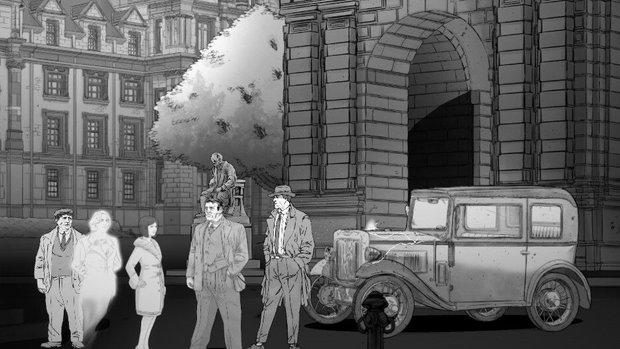
- 0 Comments
I’m a sucker for historical adventures taking place during time periods not normally explored. Roaring 20s post-war Europe is one such time and place – an intriguing setting for a game. Mix that with a stylish black-and-white hand-drawn aesthetic, a strong-willed female protagonist, and an appearance by the ghost of a famous writer and I was excited to play Jennifer Wilde: Unlikely Revolutionaries. Unfortunately, as my time with the game grew, my excitement turned to tedium as all too often I found myself wandering from location to location trying to figure out what the game wanted me to do.
Jennifer Wilde tells the story of Jennifer Chevalier, a carefree artist living in France and reveling in the debauchery of Parisian nightlife. She has an ability that makes her stand out from rest of the world, however: Jennifer can see and speak with spirits. While intriguing, this already brings me to my first problem with the game. This supernatural ability comes out so nonchalantly that I had to check and make sure I wasn’t playing a sequel. I can appreciate games that don’t get bogged down with exposition; it’s refreshing not have play through a retread of someone discovering and then learning how to live with superpowers. Yet it seemed bizarre to simply have to accept that the protagonist walked around and spoke with ghosts as if they were ordinary people. Even her friends and family and the people around Jennifer treat it normally like it’s no big deal.
The basic premise of the game is that someone very close to Jennifer dies in a suspicious traffic accident, which leads her on a hunt for the killer and their motives. As with many stories of this type, Jennifer slowly unwraps what turns out to be an international conspiracy behind the murder, in this case involving foreign spies and the Irish Republican Army. Unique to this tale, however, is that early in the story Jennifer meets the spirit of Oscar Wilde, who becomes her companion for the remainder of her investigation. The reasons for his continued involvement are flimsy at best. Ghosts are tethered to the living world by objects and in this case, Jennifer finds a locket with a picture of Wilde in it which causes him to appear in front of her. He was acquainted with the victim but it’s unclear how close they were other than frequenting the same social circles. It just doesn’t feel like a compelling motivation for declaring his willingness to follow her wherever the trail may lead.
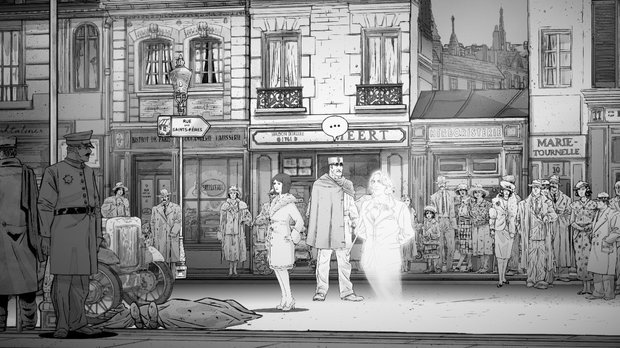
At first Jennifer tries to persuade the police that this was no accident, but they’re convinced it’s an open and shut case, and eyewitness testimony from a ghost is no help at all, so Jennifer is forced to search for answers on her own. This investigation will take her off mainland Europe and across the English Channel to London and eventually Dublin, where she finds herself in the middle of English and Irish hostilities. It turns out intelligence agencies employ spiritual warfare with psychics, and Jennifer learns she is not the only one with supernatural powers. There are a few twists and turns as you can never be sure who to trust, which won’t keep you on the edge of your seat, not knowing what’s coming next, but it is intriguing enough that I became invested in the plot and was willing to look past my frustrations to see it through to the conclusion.
Having a historical literary titan following you around and helping you solve murders seems like a novel idea, but Oscar is surprisingly quite lifeless (pun fully intended). I didn’t feel there was anything about his dialog that set him apart from any other character. This is one of Ireland’s greatest writers with a legendary wit, and I didn’t get that impression at all from his depiction in this game, which seems like a hugely wasted opportunity. I did enjoy Jennifer’s character, although her development is not explored nearly enough. When we first meet her she is a carefree Parisian artist, who is then thrown into a world of spies and psychics where people whom she thought she knew her whole life were not at all what they seemed. It’s a great setup but under such extraordinary circumstances I didn’t feel she’d matured enough by the time the game reached its conclusion.
Gameplay consists of pointing and clicking either Jennifer or Oscar around 2D third-person environments, looking for hotspots or people to interact with. You can click on a hotspot from anywhere in the room, but as you near such an object it will become a bit brighter so you know it is important. The black-and-white art style can make this sometimes difficult to see, however, as it’s a subtle highlight. Fortunately there is not a lot of clutter within the scenes to make searching for items frustrating, and you can usually tell just by the way the scene looks what might be interactive.
You have the ability to switch between Jennifer and Oscar at will with the click of a button. Jennifer is able to converse with ordinary people and spirits, while Oscar can only speak with the dead. Being intangible, Oscar cannot interact with his surroundings but is able to reach areas that Jennifer cannot, such as slipping through locked doors. And being invisible to all but Jennifer and other ghosts, he’s able to get close to people without drawing attention to himself in order to spy and gather information that Jennifer couldn’t on her own.
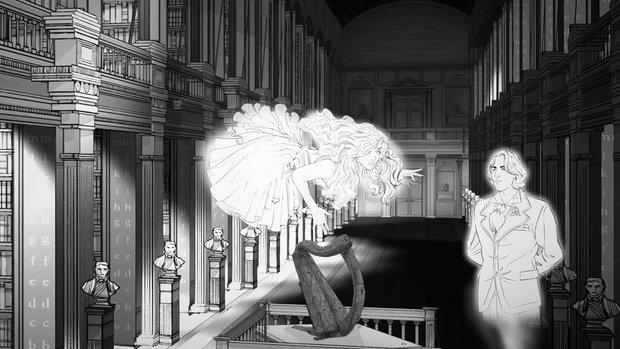
With just a few exceptions, traditional adventure game puzzles are absent from Jennifer Wilde. At times you’ll need to visit a location and talk to a character, which will then open new dialog options for another character in a different place, moving the plot forward. There’s also a tarot card puzzle (more of that later) and a clock puzzle requiring you to push the hands forward and backward in a sequence until you reach the required time. These are rare occurrences, however. The bulk of the puzzles occur through what the game calls “mystery comic panels.” One page of Jennifer’s journal has four empty frames, while the other is made up of any images or clues Jennifer/Oscar have come across in their investigation. Some of these pictures mimic cells from a graphic novel or comic book, usually depicting scenes of a past event that need to be fleshed out with more clues, either through exploration or dialog. A cell may be incomplete, usually missing a key individual, until other clues are combined with it. When the four cells are fleshed out fully, you must then set them in the correct order within the empty frames in order to finish the puzzle and achieve your current objective.
It’s a clever idea, but I felt frustrated in trying to fill out these cells on multiple occasions. I found myself wandering from location to location, retreading my steps and going through the same dialog choices until I was completely lost about how to proceed. A few times I resorted to watching a video for help. I thought maybe I was not paying enough attention to clues, but the person on YouTube doing a playthrough seemed just as stuck as I was. Usually I was missing a tiny piece preventing me from proceeding, with no indication of what or where I might find it. Other times I may have had the comic panels in the wrong order, and it wasn’t until I resorted to trial and error that I was able to figure out the correct sequence.
This brings me to the biggest problem of the game, which is how frustratingly slow the characters move. Both Jennifer and Oscar walk (or float, in Oscar’s case) without any urgency whatsoever. It certainly does not feel like they are racing against time in order to expose an international conspiracy. The time it takes to go from one end of the screen to the other is inordinate. I actually timed it in one location and it took 16 seconds to walk the full length. When you couple this with being stuck on what to do, revisiting each location over and over again, it becomes quite tedious. I’m sure the puzzles would not have been as vexing if I was able to at least increase the movement speed, which is unfortunate because it’s such a preventable issue.
I also encountered a game-breaking bug about halfway through my first playthrough. It was during a puzzle with tarot cards requiring me to discard some while keeping others on a table. The puzzle was frustrating to begin with because the objective wasn’t clear, so I was trial-and-erroring my way through it. There were nine panels but not all were intended to be used. A cryptic line of dialog hinted at what cards were to be kept, but I didn’t understand what else was required. Then, when I moved all the cards to the discard pile and planned on pulling some out manually, I tried to take one and the game completely froze. You are only allotted one save slot per playthrough, which will overwrite automatically periodically or with a manual save. When I reloaded from the previous checkpoint , all the cards were still in the discard pile and the same thing happened when I tried to pull one. I used my cloud save and played on another computer but it was still the same situation. The game was irredeemably corrupted and I was forced to start over from the beginning. When I got back to this spot it was easy enough to avoid, at least, so I was finally able to complete the puzzle and move on. Fortunately I was only about two hours into my playthrough so it wasn’t debilitating, but the glitch was annoying to say the least.
I have no such complaints about the black-and-white art style, which sets Jennifer Wilde apart from most games and looks great. Character faces are finely drawn and nicely detailed, losing nothing due to their lack of color. Most of the locations you will visit will be indoors: apartments, a psychic medium’s shop, and hotel rooms make up the bulk of your destinations. There are a few times you will find yourself outside, but not many. One scene takes place on a Parisian street, while another has you conversing with a friend on a park bench in London’s Hyde Park. Towards the end of the game, you will travel to Trinity University in Dublin, and there are some nice touches there that will be familiar to anyone who has visited the library. There’s also a scene in a police station featuring NPCs at the forefront of the screen who pop out at you.
Most scenes don’t feature any sort of movement or animation apart from Jennifer and Oscar ambling around ever so slowly. There’s a train station scene and every once in a while a train will scroll by in the background, but that’s pretty much it for movement. Even cutscenes feature no animation apart from a transition from one image to the next. There’s a similar absence of voice acting so all dialog is conveyed through subtitles. The soundtrack is limited as well, with only a few songs scattered throughout, though they’re appropriate to the time period in which the game takes place, featuring a big band 1920s vibe.
Final Verdict
Not counting my restart, this is not a long game. I was able to finish it in about five hours, and that included getting stuck multiple times. The story wraps up nicely with no loose ends, so I did not feel cheated by the short play time. Indeed, if it was any longer it would have become far too monotonous. But now that I'm done, Jennifer Wilde: Unlikely Revolutionaries is a tough game to summarize. It has the earmarks of a great adventure game, with an interesting setting, art style, and a supernatural premise connecting you to one of the more colorful characters in history. But Oscar Wilde comes across as far too generic, and the finished product ends up being too basic and bland to fully recommend. There are not many puzzles, and more often than not the ones that are here will have you meandering from location to location, clicking on the same hotspots and speaking with the same characters until you find yourself saying, “oh, that’s what I was supposed to find!” Achingly slow character movement and a game-breaking bug don’t help. I do think there’s potential here for a sequel, with stronger characterization and more interesting gameplay, but this debut outing for Jennifer and Oscar feels like a pale reflection of what it could have been.
Hot take
The stylish Jennifer Wilde: Unlikely Revolutionaries will grab you at first but the pace quickly slows, as will your interest, feeling like a missed opportunity.
Pros
- Nice black-and-white art style with graphic novel aesthetic
- Interesting setting and time period not often explored in games
- Initial supernatural murder investigation is intriguing
Cons
- A relatively few puzzles involve lots of backtracking and unclear objectives
- Frustratingly slow character movement
- Story fizzles out and becomes less interesting
Tom played Jennifer Wilde: Unlikely Revolutionaries on PC using a code provided by the game's publisher.

- Advertisement
- Help support AGH by advertising with us


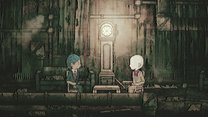


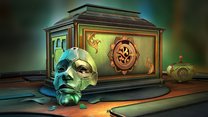
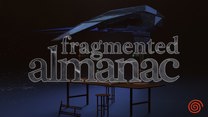


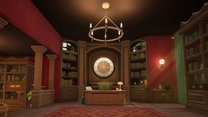
0 Comments
Want to join the discussion? Leave a comment as guest, sign in or register.
Leave a comment